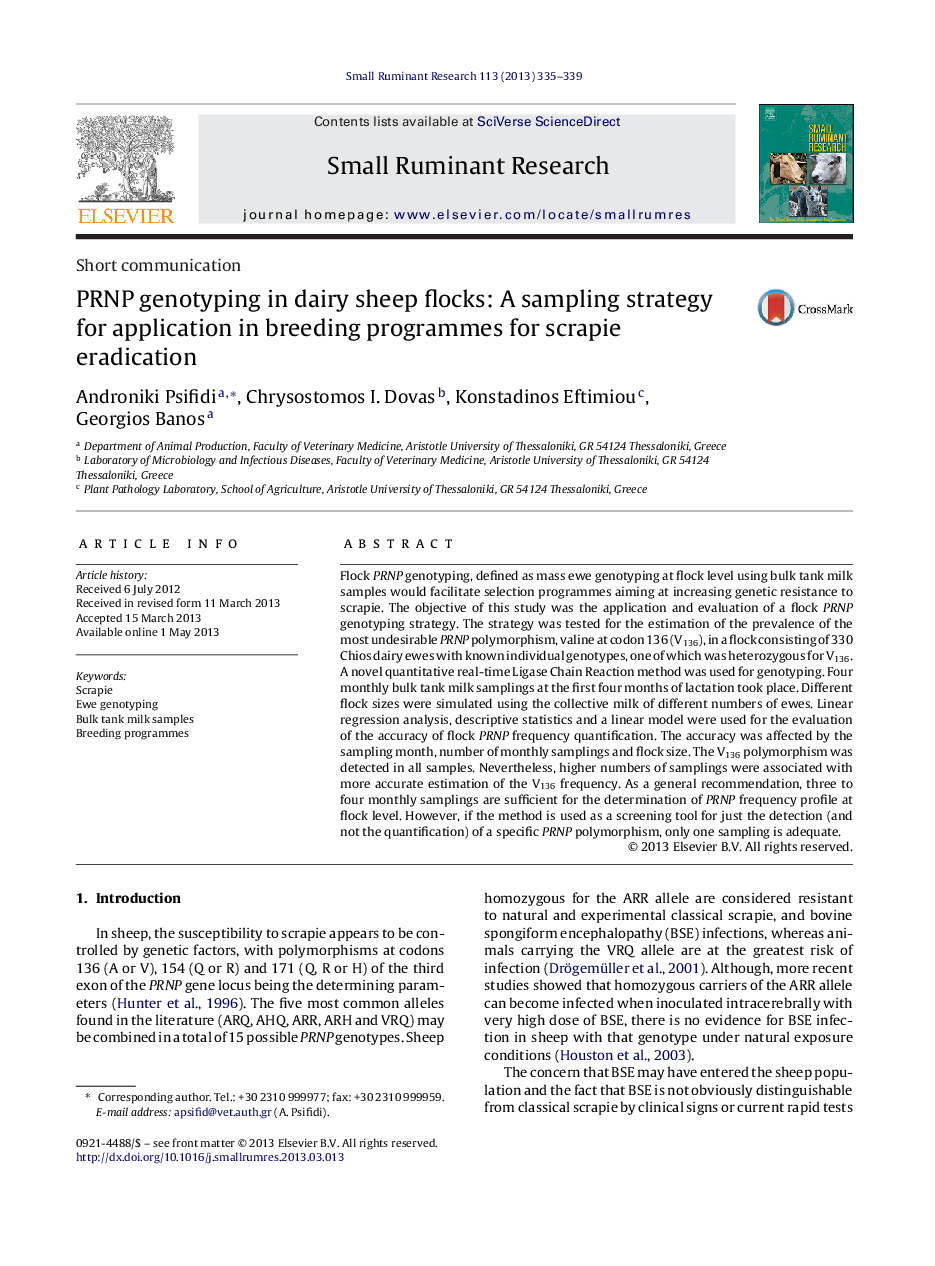| Article ID | Journal | Published Year | Pages | File Type |
|---|---|---|---|---|
| 5795889 | Small Ruminant Research | 2013 | 5 Pages |
Abstract
Flock PRNP genotyping, defined as mass ewe genotyping at flock level using bulk tank milk samples would facilitate selection programmes aiming at increasing genetic resistance to scrapie. The objective of this study was the application and evaluation of a flock PRNP genotyping strategy. The strategy was tested for the estimation of the prevalence of the most undesirable PRNP polymorphism, valine at codon 136 (V136), in a flock consisting of 330 Chios dairy ewes with known individual genotypes, one of which was heterozygous for V136. A novel quantitative real-time Ligase Chain Reaction method was used for genotyping. Four monthly bulk tank milk samplings at the first four months of lactation took place. Different flock sizes were simulated using the collective milk of different numbers of ewes. Linear regression analysis, descriptive statistics and a linear model were used for the evaluation of the accuracy of flock PRNP frequency quantification. The accuracy was affected by the sampling month, number of monthly samplings and flock size. The V136 polymorphism was detected in all samples. Nevertheless, higher numbers of samplings were associated with more accurate estimation of the V136 frequency. As a general recommendation, three to four monthly samplings are sufficient for the determination of PRNP frequency profile at flock level. However, if the method is used as a screening tool for just the detection (and not the quantification) of a specific PRNP polymorphism, only one sampling is adequate.
Keywords
Related Topics
Life Sciences
Agricultural and Biological Sciences
Animal Science and Zoology
Authors
Androniki Psifidi, Chrysostomos I. Dovas, Konstadinos Eftimiou, Georgios Banos,
